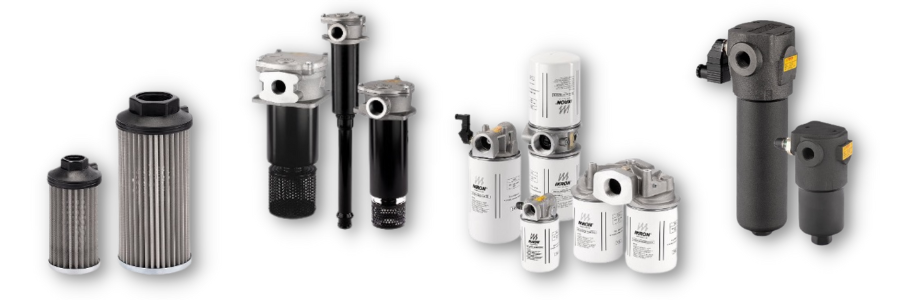
Composition of Hydraulic Oil
Hydraulic oil is a specially formulated fluid designed to transmit power within hydraulic systems. It is composed of a base oil and various additives. The base oil can be mineral oil, synthetic oil, or a combination of both. Mineral oil is derived from crude oil and is cost-effective, while synthetic oil is manufactured to provide superior performance in extreme conditions. Additives are incorporated to enhance specific properties of the oil, such as viscosity, anti-wear characteristics, and resistance to oxidation.
Functions of Hydraulic Oil
Power Transmission: The primary function of hydraulic oil is to transmit power within the hydraulic system. As the oil is pressurized by a pump, it transfers force to the hydraulic components, allowing them to perform mechanical work.
Lubrication: Hydraulic systems involve moving parts that can generate friction and heat. Hydraulic oil serves as a lubricant, reducing wear and tear on components and ensuring smooth operation.
Heat Dissipation: Hydraulic systems can generate significant heat during operation. Hydraulic oil helps dissipate this heat, preventing overheating and ensuring the system operates within the optimal temperature range.
Seal Protection: Hydraulic systems rely on seals to prevent fluid leakage. The oil provides a protective film on these seals, extending their lifespan and maintaining system integrity.
Selection of Hydraulic Oil
Choosing the right hydraulic oil is crucial for the efficient and reliable operation of hydraulic systems. Several factors influence the selection process:
Viscosity: Viscosity is a measure of a fluid's resistance to flow. The appropriate viscosity of hydraulic oil depends on the operating temperature and the system's design. Low viscosity oils are suitable for cold environments, while high viscosity oils are better for high-temperature applications.
Base Oil Type: The choice between mineral oil and synthetic oil depends on factors such as temperature extremes, load conditions, and the desired lifespan of the hydraulic fluid. Synthetic oils offer better performance in extreme conditions but are generally more expensive.
Additive Package: Additives play a crucial role in enhancing the performance of hydraulic oil. Anti-wear additives, antioxidants, and anti-foaming agents are commonly used to improve the oil's properties. The specific requirements of the hydraulic system should dictate the selection of additives.
Compatibility: It is essential to ensure that the chosen hydraulic oil is compatible with the materials used in the hydraulic system, including seals and hoses. Incompatible oils can lead to degradation of system components.
Maintenance of Hydraulic Oil
Regular maintenance is vital to ensure the longevity and optimal performance of hydraulic systems. Here are key aspects of hydraulic oil maintenance:
Oil Analysis: Periodic oil analysis is a proactive approach to monitor the condition of hydraulic oil. It helps identify contaminants, wear particles, and any degradation of the oil, allowing for timely intervention before issues escalate.
Filtration: Installing high-quality filters in the hydraulic system is crucial for removing contaminants and extending the life of the hydraulic oil. Regular filter replacement is necessary to maintain effective filtration.
Temperature Control: Monitoring and controlling the operating temperature of the hydraulic system is essential. Excessive heat can lead to oil degradation and reduced performance. Coolers and temperature control devices can help regulate temperature.
Seal Inspection: Regular inspection of seals is necessary to detect and address any leaks promptly. Leaking seals not only lead to fluid loss but also allow contaminants to enter the system.
Environmental Impact of Hydraulic Oil
The environmental impact of hydraulic oil is a growing concern, and efforts are being made to develop environmentally friendly alternatives. Key considerations include:
Biodegradability: Environmentally friendly hydraulic oils are designed to be biodegradable, minimizing the ecological impact in case of accidental spills. These oils break down into harmless substances over time.
Toxicity: Traditional hydraulic oils may contain additives that are harmful to aquatic life. Environmentally friendly options aim to reduce toxicity and ensure minimal harm to ecosystems.
Renewable Sources: Some hydraulic oils are derived from renewable sources, such as vegetable oils. These bio-based alternatives aim to reduce dependence on finite fossil fuels.
Regulatory Compliance: Many regions have strict regulations regarding the use and disposal of hydraulic oils. Adhering to these regulations is not only a legal requirement but also contributes to environmental sustainability.
When to Avoid Hydraulic Oil:
In certain environments with potential ignition sources, such as sparks, open flames, or hot metal, it's essential to avoid oil-based hydraulic fluids. In such hazardous settings, a hydraulic system leak could trigger an explosion or severe fire. ATEX (Atmosphères Explosibles) regulations provide guidelines for controlling explosive atmospheres.
Hydraulic Filters and Oil Life:
Hydraulic filters are indispensable in hydraulic systems, serving to protect oil life and prevent abrasive wear by removing particle contaminants from the hydraulic fluid. Selecting the appropriate hydraulic filter is critical to maintaining system integrity and longevity."

VHS Hydraulic Components is an official UK dealer for Ikron Fluid Filtration. Founded in 1997 in Italy, Ikron Fluid Filtration is part of the Casappa group and offers a range of hydraulic filtration products, including Suction Filters, Return Line Filters, Spin-On Filters, Medium Pressure Filters and High Pressure Filters, as well as a variety of accessories and reservoir components.
Conclusion
Hydraulic oil is a fundamental component of hydraulic systems, playing a critical role in power transmission, lubrication, and heat dissipation. Selecting the right hydraulic oil, coupled with diligent maintenance practices, is essential for ensuring the efficiency and longevity of hydraulic systems. As environmental concerns continue to grow, the development and adoption of environmentally friendly hydraulic oils are becoming increasingly important. By understanding the composition, functions, selection criteria, maintenance practices, and environmental impact of hydraulic oil, industries can make informed decisions that balance performance with ecological responsibility.
To enquire about your hydraulic requirements, please contact VHS Hydraulic Components on: 0114 276 4430 / E: info@www.hydraulic-components.net or visit our website at: https://www.hydraulic-components.net.





 No Minimum Order
No Minimum Order














